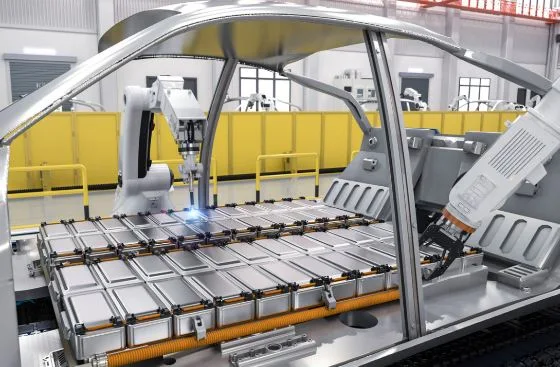In an effort to track and manage the environmental impact of electric car batteries, Europe will be implementing a requirement for "battery passports" starting in 2027. This new regulation aims to ensure transparency and accountability in the production and disposal of electric vehicle batteries. By establishing a standardized documentation system for batteries, the European Union seeks to promote sustainable practices and facilitate the recycling and repurposing of battery materials. The introduction of battery passports reflects a growing emphasis on environmental responsibility within the automotive industry, signaling a significant step towards a more sustainable future for electric vehicles.
The European Union will introduce ‘battery passports’ for electric cars from February 2027 – but it’s not what you might first be expecting.
All new electric cars in the European Union will be required to be sold with a ‘battery passport’ from 2027, providing information about where the materials used to make the power pack come from – but the unique system won’t be adopted in Australia just yet.
From February 2027, the European Union will require all industrial or electric vehicle batteries with a capacity of more than 2kWh to have its own ‘passport’, which will be linked to the vehicle identification number (VIN) of the car.
When scanned with a QR code-reading device, the passport will show information about who produced the battery or handled its materials, all the way from the mines to being connected in the car – putting greater responsibility on manufacturers to have transparent supply chains.
The battery passport will also display a battery’s condition and capacity, allowing future buyers of an electric car to make better-educated decisions about whether the power pack needs to be replaced in the near future.
Speaking with UK publication Autocar, Ellen Carey, chief external affairs officer at Circulor – which is one of a handful of companies creating battery passports – said the new technology will not only benefit electric car owners but also manufacturers.
“Not everyone gets to see the same data,” Ms Carey told Autocar.
“The automotive [manufacturer] gets to see everything. The [car buyer] gets to see the general information, maybe some of the supply chain information and certainly the state of capacity and state of health.
“That data changes depending on the role in either the primary sourcing or the circular economy. Maybe the [recycler, for example] really only sees the type of battery it is and how to safely remove it and handle it.
“The interesting part about this is that it’s really the first time, product-wise, that such granular information about upstream activity is getting shared with the end consumer, so that gives them purchasing information and purchasing choice.”
The European Union is yet to finalise what specific details will be required on the battery passports, though it is understood there are no plans for the program to be adopted outside of the continent at this stage.



